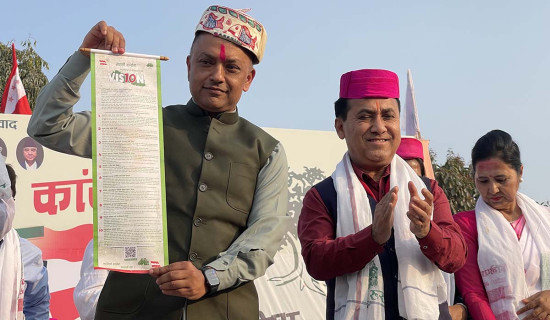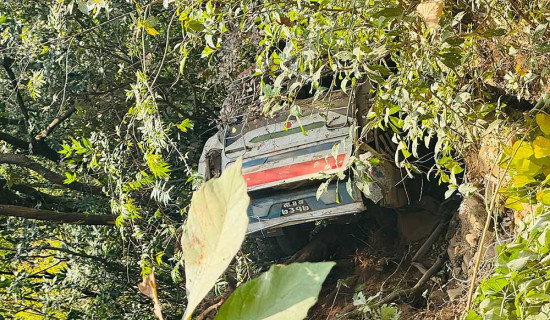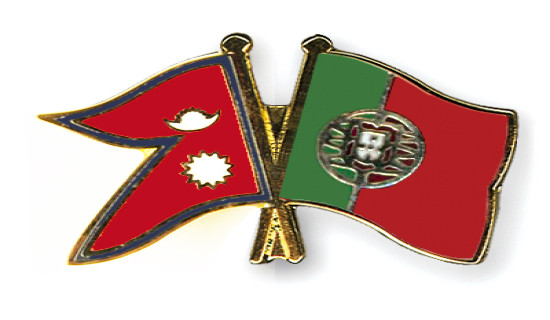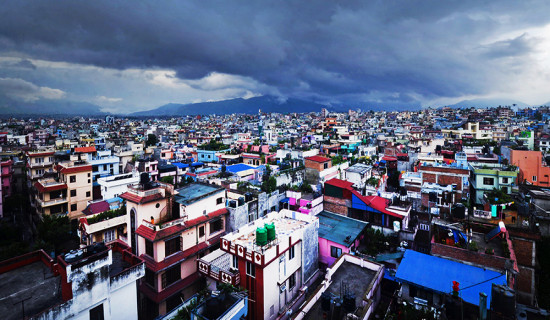- Thursday, 19 February 2026
Civil Society Vital For Democracy
Civil society transforms and envisages the growth of civilisation. It embraces the material intercourse of individuals in a definite stage of development in a productive force. In a civil society, modern people legitimately gratify their self-interest and develop their personality. Individuals within civil society learn the importance of group actions and social solidarity which equips them for meaningful and productive participation in government and state activities. Diverse and well-intentioned civil societies play a crucial role in strengthening democracy and civic trust as the interests of citizens are of utmost priority. Social intervention by the state may not have democratic credentials without civil service engagement as it is the backbone of the state and citizens.
In an international level, civil society is considered a significant collaborator that could further enhance the legitimacy of the state and encourages engagements with public and political constituencies. Democratic governments are considered to be people-centric. This, however, depends on certain factors. A government should provide an institutional framework for public participation in economic and social processes. Free and fair elections, independent judiciary, and free media are the basis for securing welfare of people which ultimately furnishes a conducive environment for the social, economic and political freedom of the individual. Civil society has the potential to further democratise the political and social sectors by fostering greater public participation within state initiative.
Transnational corporations
Liberalisation and globalisation have also created nuances within democracy. The emergence of transnational corporations has narrowed down the independent and broad national democratic governance, which in the long run, could weaken public participation and government accountability. The core problems of excessive poverty, lack of appropriate representation, inequality, rampant corruption, terrible situation of violence, and different sorts of polarisation demands permanent amicable solutions. Consequently, there is a need of ideas and information that allows citizens, politicians, and policy makers to maintain a common basis for policy and decision making. In a democracy, different opinions are encouraged and respected and it is important to build consensus which allows citizens to identify common needs and objectives.
Heightened transparency and accountability of the state activities need to be guaranteed. To meet all these, the strengthened role of civil societies is frequently proved essential. Creating mass awareness is a significant contribution of civil societies when it comes to strengthening democracy. Such societies educate general citizens about their rights and responsibilities. Additionally, they highlight the consequences of governmental policies as well as international treaties and agreements on the public. There is a symbiotic relationship between civil society and the government as the legitimacy of the latter can be greatly bolstered by the former.
Civil societies advocate for citizens’ right to information and transparency. A priority is given to addressing the interest of the excluded class of vulnerable and marginalised citizens. Due to the positive pressure of civil society, governments tend to work appropriately in favour of people. Individuals are encouraged to be involved in political affairs through association and exercising their democratic rights. The roles and responsibilities of civil society are of immense value for good governance and in the process of nation building.
Following the 1990 people’s movement, Nepal witnessed a proliferation of civil society organisations. But the commercialisation of civil sphere and civil denunciation has heavily contributed to the failure of civil society. Political instability has been the fundamental characteristic of Nepali society. Rampant corruption in the state is continuing and civil activists have destroyed their traditional well-accepted norms. Activists feel proud of having membership and actively involved in a political party.
So, civil society is transformed as a self-centred, political party-affiliated organisation led by elites. Civil society in Nepal is in the process of empowerment. Proposition of inclusive secular civil society to avoid theoretical and practical bias existing in this field is suggested for its effectiveness. This will elucidate new breed of civil society in the country. To liberate people from primordial thinking and prepare them to raise above personal, family and party interest, otherwise our civil society will further develop as water in tinted glass.
Emerging challenges
Civil societies are welcomed in democratic set-up as their immense roles for the overall development have been always desirable. Their role in the process of transforming societies, strengthening democracy, enabling, empowering, and mainstreaming mass people to the government business have been appreciated. Civil society may respond to various emerging challenges as well as it may contribute even to the restoration of democracy. Many civil societies in various parts of the globe have been successful to garner people to support them through the efforts of advocacy and to compel the state to formulate her pro-people policies as well.
Cohesive and conducive environment and solidarity are created through social works. Such beneficial and people-friendly activities assist in establishing a true and well-developed democratic state. The third wave of democratisation that swept away undemocratic regimes worldwide in reality was led by civil society. So, civil societies are the genuine friends of the people and soul of democracy in a global context.
(Mainali is a former government secretary.)










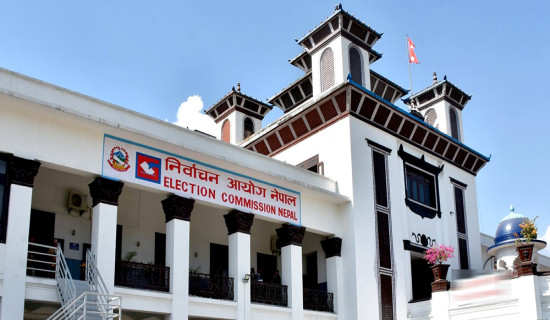
-original-thumb.jpg)

